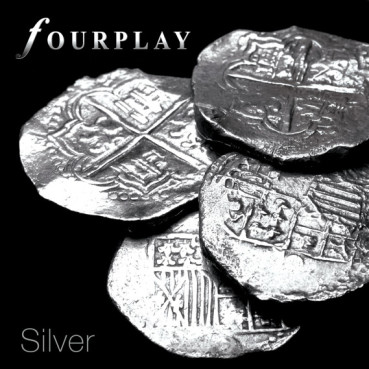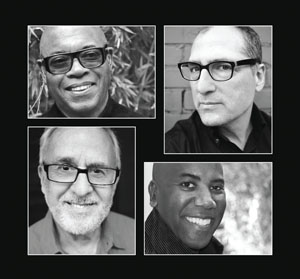 For more than 50 years, two-time Grammy Award-winning pianist Bob James has continued to blaze new trails in music, composing smash standards like “Angela (Theme from Taxi),” being one of the most sampled artists in hip-hop, and through his quarter-century association with the jazz supergroup Fourplay, whose members include Harvey Mason, Nathan East, and Chuck Loeb.
For more than 50 years, two-time Grammy Award-winning pianist Bob James has continued to blaze new trails in music, composing smash standards like “Angela (Theme from Taxi),” being one of the most sampled artists in hip-hop, and through his quarter-century association with the jazz supergroup Fourplay, whose members include Harvey Mason, Nathan East, and Chuck Loeb.
The year 2015 is an especially sweet one for James, with the release of Live at the Milliken Auditorium in March, followed by The New Cool (a collaboration with East) in September, and now Fourplay’s newest studio disc Silver, out this Friday (Nov. 20), which Soul Tracks calls “a welcome celebration of twenty-five years of excellence.” The band kicks off its American tour Dec. 1-6 with a special “Blue & Silver Holiday Celebration” at Blue Note Jazz Club in New York City, followed by dates throughout 2016.
In this exclusive, expansive interview conducted in August, I spoke with James about every single cut on Silver, the joys of working with his partners in Fourplay that have kept the group vital for so long (a rarity in jazz), and everything else from concertos to coiffures.
I want to start off by congratulating you, Bob—you’ve released three new albums this year. How does it feel to still be knocking them out like that?
It feels wonderful, Justin. I’m just very excited to see them all come to fruition. When we start out with projects, we never really know what the timing is going to be, or how long it’s going to take to get them finished, but somehow or another, a lot things just seemed to coalesce and get finished at very similar times, so it’s a very intense period of musical time for me.
Of course, in addition to Fourplay’s new album we’re talking about Live at the Milliken Auditorium, released earlier this year, and The New Cool, your collaboration with Nathan East. Was that one inspired mostly by the work you did with David Sanborn on your last record together? It has that acoustic, loose kind of feel to it.
Yes, it was definitely influenced by that. Overall, I’ve been feeling the desire to focus a lot on the acoustic piano and to have my music be influenced by my piano playing. I’ve been identified a lot with electronic synthesizers and electric piano and Fender Rhodes, those other sounds, but my major love has always been the piano, and the nuances and all the different colors…there’s nothing like it. And having the opportunity to do that, and having it be encouraged by this project that was not completely coincidentally sponsored by Yamaha piano company gave me the chance to really stretch out and play piano.
 Silver celebrates 25 years of Fourplay. Did the theme of the album inspire the tunes, or was it the other way around?
Silver celebrates 25 years of Fourplay. Did the theme of the album inspire the tunes, or was it the other way around?
I would like to think of it as pretty natural, and it was gradual, too, because we realized a couple of years ago that we were approaching this milestone, and we knew that an anniversary project would be related to it, so we all came at it from different angles and wanted it to be a celebration. I don’t think any of us limited ourselves in terms of the music itself; we approached the new, original compositions pretty much the way we always do—just try to come up with the best music that we can, thinking about the other members of the group, and what will inspire them. And as usual, the titles came toward then end, including the idea that we would actually call the album Silver. That didn’t happen until toward the end of the process, especially the idea of actually calling some of the songs related to the idea of the silver anniversary. So that was kind of a fun, creative addition, and the only really thematic thing that was on our minds from the beginning was the idea of maybe reaching back into our past and featuring some of the people who had been involved with Fourplay as guests, and as it turned out, our major thing was to invite Lee Ritenour and Larry Carlton to come back and join us, which they happily agreed to do, and so we got them featured as well as inviting a very special guest, the first time ever having a saxophone player play on one of our records: Kirk Whalum.
CONTINUE READING AT EXAMINER.COM
 Oct. 31, 2015
Oct. 31, 2015





